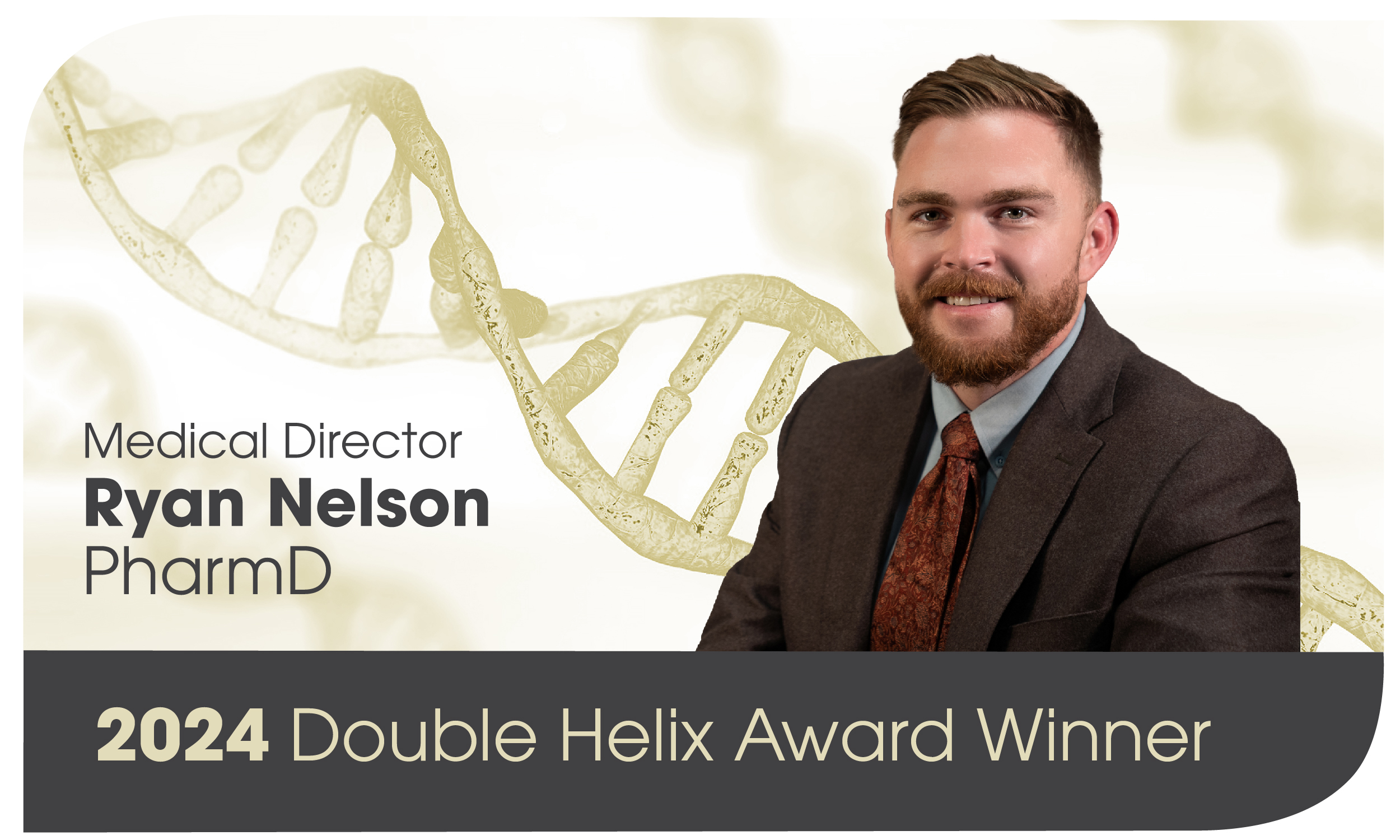
Ryan Nelson, PharmD, medical director of Precision Medicine at ARUP, was presented with a Double Helix Award by the American Society of Pharmacovigilance (ASP).
Ryan Nelson, PharmD, medical director of Precision Medicine at ARUP, was presented with an inaugural Double Helix Award for his work on MetaCensus, an open-access data repository designed for peer review and meta-analysis.
Nelson received the Double Helix Award during a special ceremony at the Standardizing Laboratory Practices in Pharmacogenomics (STRIPE) Annual Meeting and Consensus Workshop on October 23, 2024. Convened by the American Society of Pharmacovigilance, STRIPE is a continuing forum for building consensus around standards for integrating personalized medicine into healthcare practices.
The award category was, “Excellence in Advancing Pharmacogenomics Through Collaboration,” and collaboration lies at the heart of Nelson’s work on MetaCensus. The initiative is intended to broaden access to scientific evidence, foster collaborative peer reviews, build scientific consensus, and highlight areas lacking data.
Medical associations that develop testing and treatment guidelines need better tools to evaluate evidence and generate consensus, said Nelson. “There are varying levels of robustness and quality in the evidence that they look through. They evaluate and weigh that evidence very methodically to determine what it means for their guideline recommendations. In many cases, there’s a lack of support from the tools they use to generate consensus,” he said.
MetaCensus addresses this challenge with a peer-review voting mechanism that enables project members to evaluate datasets and vote on their inclusion during meta-analysis and guideline development.
When it comes to meta-analyses, finding apples-to-apples publications and aggregating diverse datasets is a tremendous challenge. “Deciding which papers should be included is really tricky,” Nelson said. “Author groups are usually two to 10 authors in size. And when you look at the results, although they’re asking the same question and using what they say is the same methodology, they almost never come to the same conclusions.”
MetaCensus allows scientists to “look at all the evidence that’s been published and zoom back out and say, ‘What does this really mean in context of the rest of the evidence? What does this mean in terms of recommendations for our patients?’” Nelson said.
MetaCensus debuted at the 2024 STRIPE Annual Meeting and Consensus Workshop in October. Workshop groups spent the first two days building consensus statements on different topics. “We crafted statements highlighting what problems exist in our specific domains of pharmacogenetics, what we wanted solutions to those problems to look like, and what actions might look like to address the highlighted problems,” Nelson said. On the last day, he said, “We submitted our statements on MetaCensus and then held a question-and-answer session followed by a live vote with attendees.”
Within MetaCensus, participants voted to support or reject the statements or abstained from voting. Additionally, the platform let participants provide revisions or qualifiers necessary for them to approve the statements.
The utilization of MetaCensus at STRIPE was a success, Nelson said. As a result, several associations, agencies, and healthcare organizations expressed an interest in considering the use of MetaCensus within their institutions. “People recognize there are limitations and hindrances to catalyzing consensus in their specific professional domains. I think we highlighted one viable option to help address those hindrances and limitations,” he said.
“It’s important for science to have a whole bunch of different minds looking at the same issues critically and deciding together what needs to be done,” Nelson said. “We need people checking our work. We need to ensure that we're doing what’s best by the group at large, and then deciding collectively how to move forward. More importantly, it just happens faster if you collaborate.”
Heather Stewart, heather.stewart@aruplab.com
















